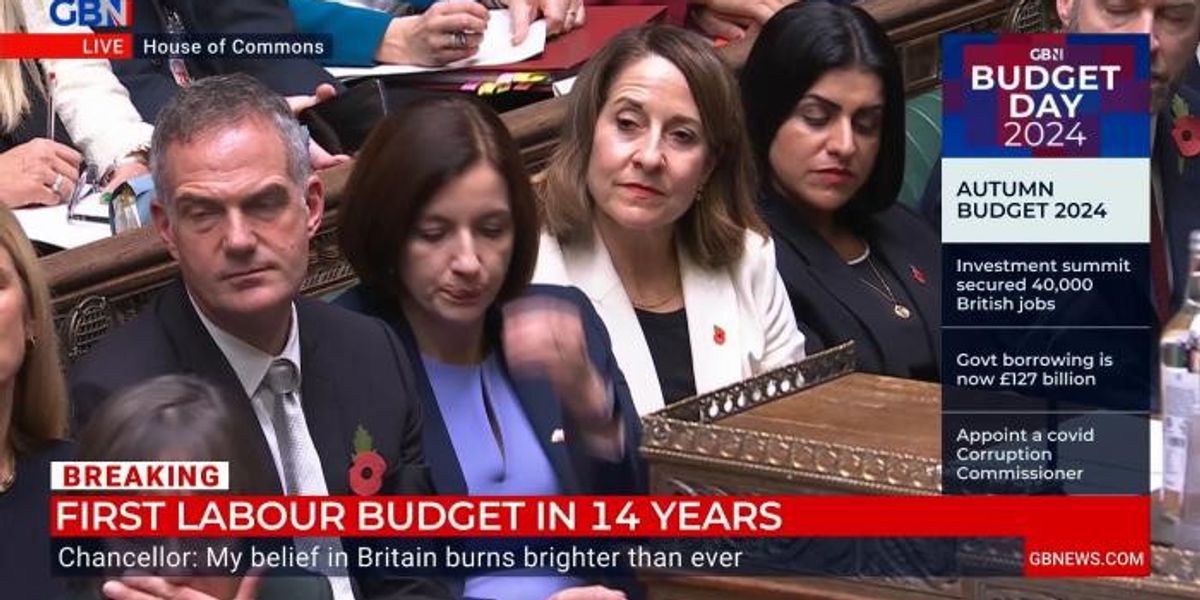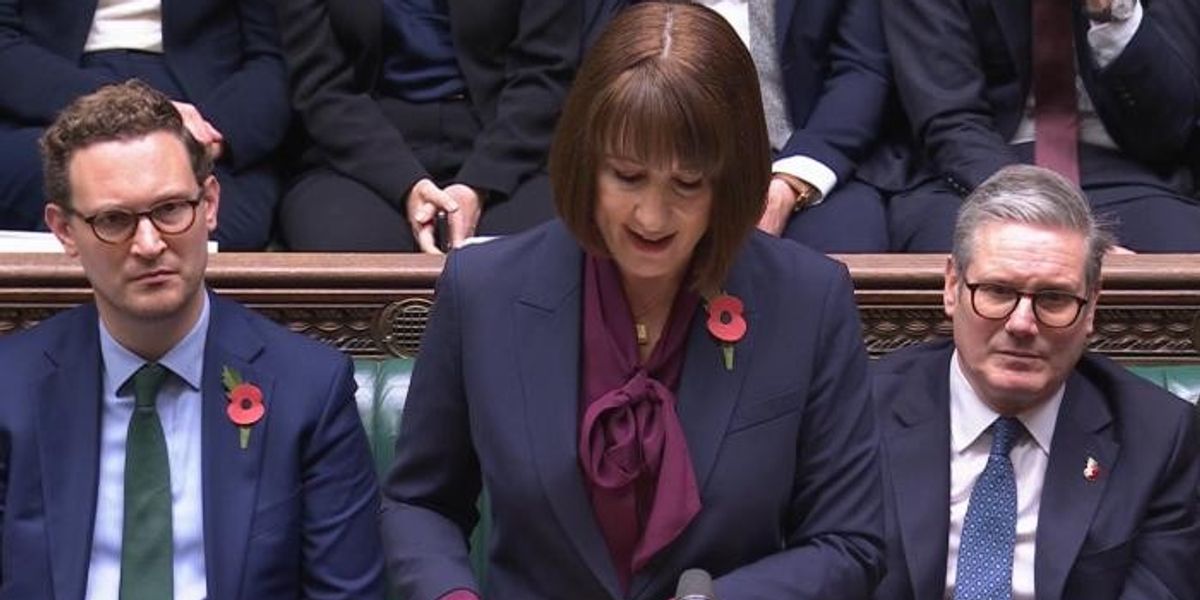Trump Is Pulling From White Feminism’s Playbook
Yes! ^ | Oct 31, 2024 | Serene Khader
Posted on 11/05/2024 1:07:48 PM PST by nickcarraway
As it becomes increasingly likely that women will decide this presidential election, both parties are scrambling for women’s votes. Kamala Harris continues to position herself as the “girls’” candidate by foregrounding abortion rights and appearing with Beyoncé and on podcasts like Call Her Daddy.
Meanwhile, Donald Trump and J.D. Vance seem to be recognizing that a campaign whose gendered messaging has consisted almost entirely of overt misogyny is not doing them any favors with women voters. The last few weeks have seen the Republican ticket making a host of promises to women: to “protect” them, to give them “choices” that will help them withstand “cultural pressure,” and to ensure a world where they will “no longer have anxiety.”
This women-specific messaging from Trump and Vance reflects an important shift in our political culture. Feminism has achieved an unprecedented level of popularity. In a time when 61% of women in the United States identify as feminists, it has become difficult to reach women without making some kind of claim about understanding their plight.
Yet Trump and Vance—who oppose abortion rights, have no plans to raise the federal minimum wage, and who seem to think tariffs will solve the nation’s childcare crisis—cannot present themselves as advocates for women without undermining their own policy positions. Yet they are now addressing what have traditionally been thought of as feminist issues, such as sexual assault, Title IX, and the struggles of moms. Their gloss on the issues is, unsurprisingly, racist, transphobic, and indifferent to economic inequality. But they seem to be banking on the idea that elite women will mistake the candidates’ investments in oppressive systems with investments in the fate of women.
There is a preexisting reservoir of arguments available to help Republicans accomplish this confusion, and it comes from a surprising place: from within feminism. As I argue in my new book, Faux Feminism: Why We Fall for White Feminism and How We Can Stop (Beacon Press, October 2024), feminism has always had many strands within it, and some of these have sought to advance the interests of privileged women at the expense of less privileged ones.
Trump has, in recent weeks, repeated the message that he will be women’s protector. This position has been roundly criticized for being condescending to women, and for being creepy coming from an alleged rapist. But less has been said about which women Trump and his surrogates claim to be protecting, and whom he claims to be protecting them from.
Trump’s original protector comments were embedded within a set of dog whistles about men of color. His specific promise was to make (presumably white) women feel “safe at the border” and on “city streets.”
This is part of a longer-running theme in which Trump has repeatedly attempted to associate rape with Latinx and undocumented people, in spite of the fact that the prevalence of sexual assault is high among all racial and ethnic groups, and in spite of the fact that many rapes of migrant women are perpetrated by U.S. Customs and Border Patrol.
This strategy of associating Black and Brown men with rape also has a longer history within white feminism. Feminists in the late 19th and early 20th centuries actively argued that “other” men’s treatment of women was a reason that countries in the Global South need to be colonized. The dominant feminist response to rape in the U.S. until quite recently was what is known as “carceral feminism,” an approach that proposes widening the reach of a racist criminal justice system as the solution to gender-based violence.
Trump’s and Vance’s borrowings from white feminism extend to another domain in which they are using the language of “protection”: women’s sports. Vance recently claimed that excluding trans women in sports would prevent his daughter from being “brutalized,” repeating a false image of the trans woman as a violator of women’s “safe spaces.” This concept has recently resurged since its initial popularity in feminist separatist circles in the 1970s. Feminists of color were vocally critical of the idea of “safe spaces” at the time, because it assumed that there was one way to be a woman—usually, implicitly, the white way.
Vance’s recent rhetoric around family and childcare draws on another, “softer” side of white feminism. The sarcastic tone of his “childless cat ladies” comments and his participation in banter about the “whole purpose of the postmenopausal female” seems to have vanished, replaced with a man who wants to defend moms from “cultural pressure” and judgment, and instead give them “choices.”
The idea that feminists are enemies of stay-at-home moms has its roots in the “mommy wars” of the 1990s. Conservatives of the time managed to block feminist efforts to secure free childcare by portraying the feminist as a judgmental career woman who looked down her nose at motherhood.
The legacy of this period endures in the popular feminist claim that the aim of feminism is to respect individual women’s choices—that women should be able to make decisions about their lives without fear of judgment. Yet a feminism focused on non-judgment continues to serve only the most privileged women, since the “choice” not to work outside the home has only ever been available to the well-off. Across a range of issues—childcare, abortion, and sexual harassment—what women actually need is not the false guise of options, but also material support.
Whether these strategies of appealing to privileged women will win Trump and Vance the election remains to be seen. But the lessons from these appropriations of seemingly feminist arguments extend far beyond what happens this November. Unless we achieve greater moral clarity about the goals of feminism, it will remain easy for privileged women to confuse their interests with the interests of women and gender-expansive people as a group.
Fortunately for feminists, arriving at this clarity does not have to mean starting from scratch. White feminism, and its sister ideologies such as neoliberal feminism and femonationalism, have never been the only games in town. These ideologies, I argue in the book, are united by an understanding of feminism as a movement to increase women’s individual freedom.
But feminism should really be understood in the way bell hooks famously described it in 1984—as a movement against oppression. Oppression is not the same thing as restrictions on what individual women can do; it is a set of social structures that brings down women as a group. It is only by reclaiming this heart of feminism that we can fight against the proliferation of faux feminisms that serve the interests of the powerful.
TOPICS: Constitution/Conservatism; Culture/Society; Editorial; Politics/Elections
KEYWORDS:
Dear FRiends, Please use this temporary link to donate by credit card via Authorize.Net:
Or click here to donate by PayPal
Or by mail to: Free Republic, LLC - PO Box 9771 - Fresno, CA 93794
Hopefully, we'll have our normal CC system up and running again soon. Thank you very much for your loyal support!
So, this woman is insulting one of the groups that supports Harris the strongest?
1 posted on 11/05/2024 1:07:49 PM PST by nickcarraway
Disclaimer: Opinions posted on Free Republic are those of the individual posters and do not necessarily represent the opinion of Free Republic or its management. All materials posted herein are protected by copyright law and the exemption for fair use of copyrighted works.
FreeRepublic.com is powered by software copyright 2000-2008 John Robinson

 By Free Republic | Created at 2024-11-05 21:09:01 | Updated at 2024-11-05 23:58:08
2 hours ago
By Free Republic | Created at 2024-11-05 21:09:01 | Updated at 2024-11-05 23:58:08
2 hours ago
![When you use AI to replace every mention of "our democracy" with "our bureaucracy," everything starts making a lot more sense. [video]](https://news.devevil.com/site/uploads/2024/Apr/14/news2.png)





